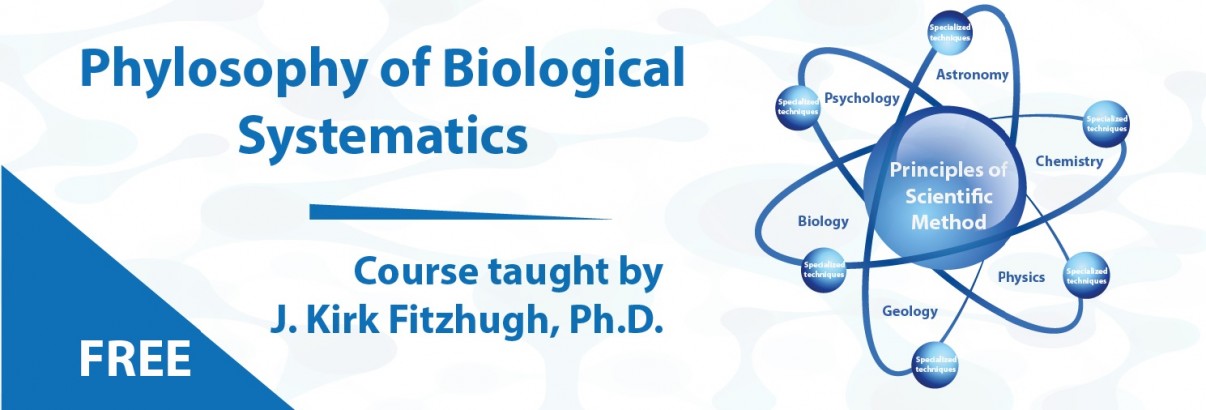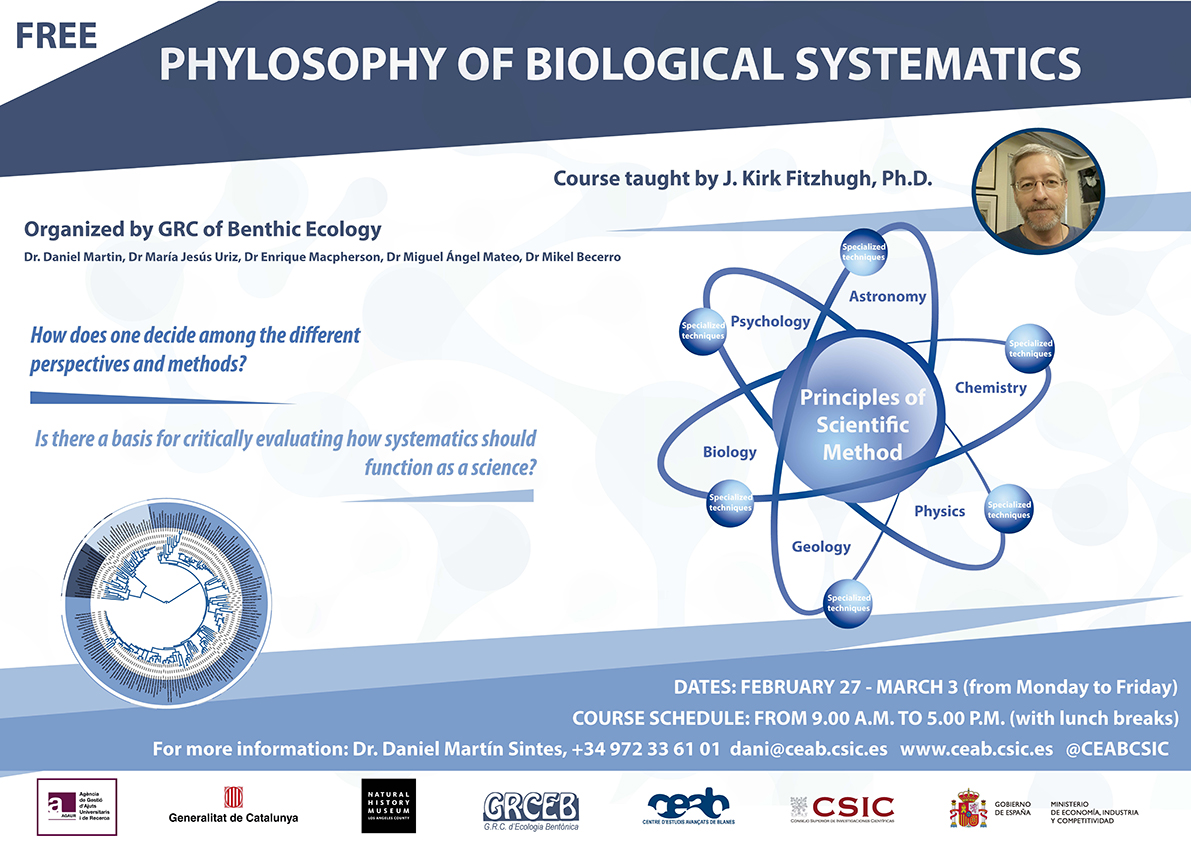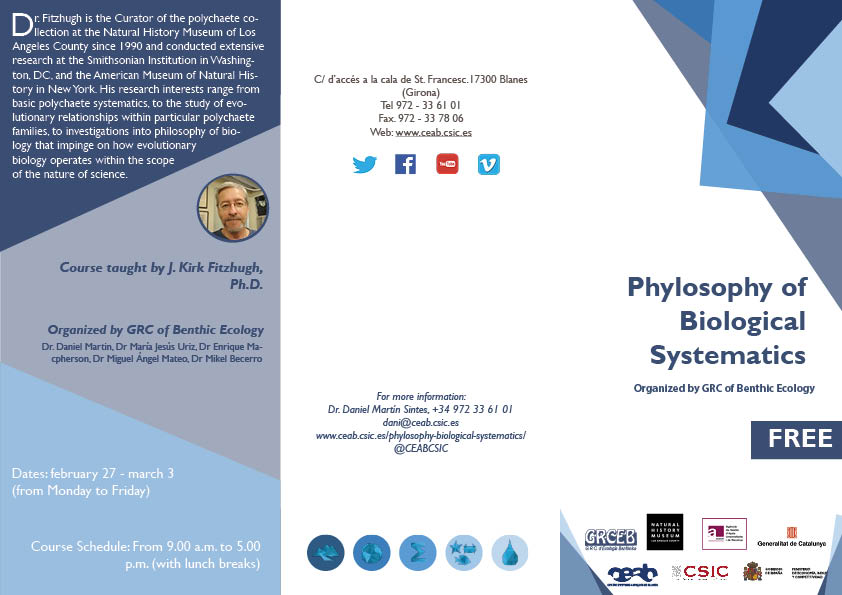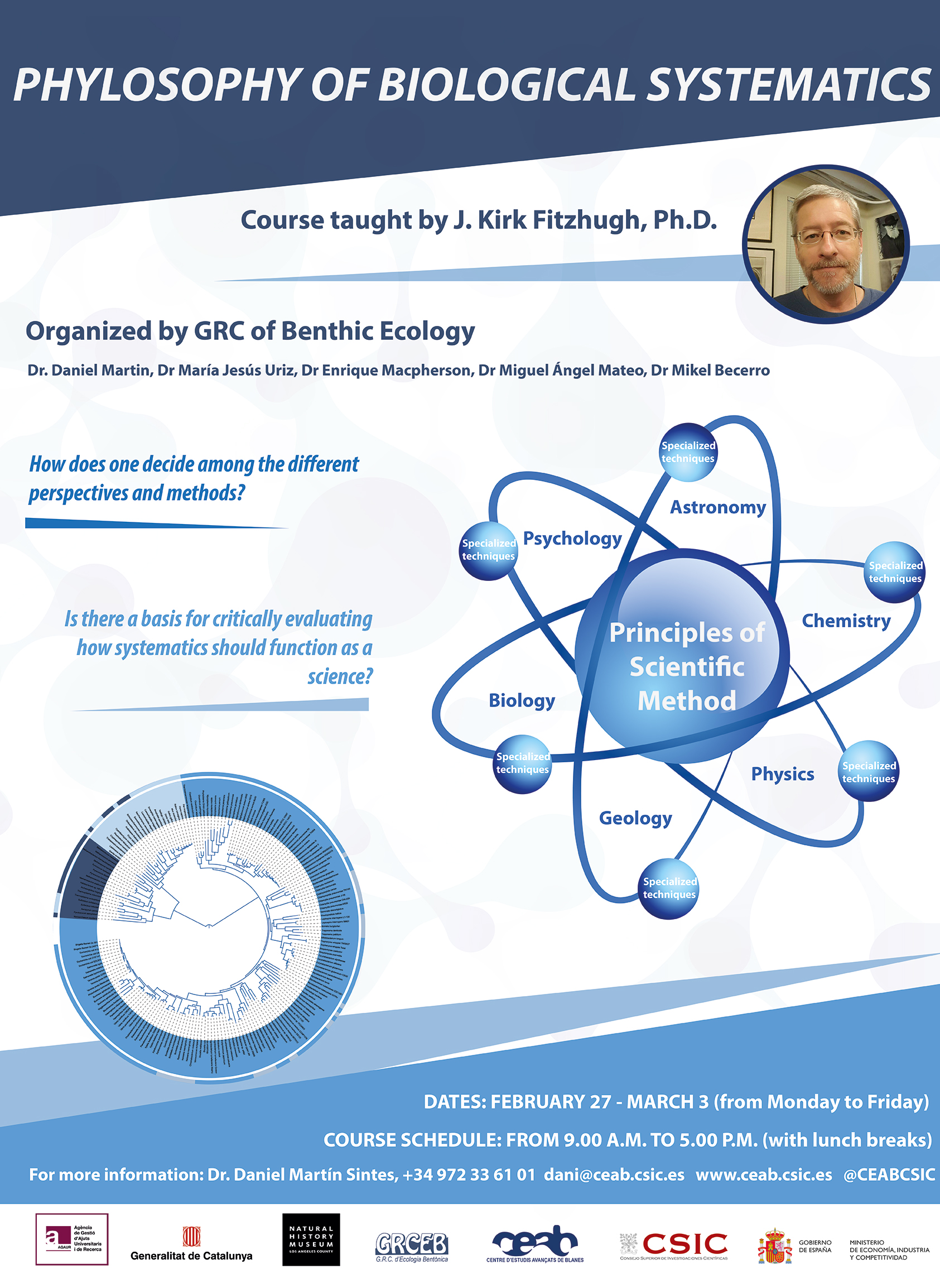Kirk Fitzhugh, Ph.D.
Dr. Fitzhugh is the Curator of the polychaete collection at the Natural History Museum of Los Angeles County since 1990 and conducted extensive research at the Smithsonian Institution in Washington, DC, and the American Museum of Natural History in New York. His research interests range from basic polychaete systematics, to the study of evolutionary relationships within particular polychaete families, to investigations into philosophy of biology that impinge on how evolutionary biology operates within the scope of the nature of science.
Philosophy of Biological Systematics
Systematics has become a field of research with many different and often conflicting perspectives and methods. How does one decide among these options? Is there a basis for critically evaluating how systematics should function as a science? Approaching the subject from the perspective of the philosophical foundations of science, Philosophy of Biological Systematics is a unique course offering critical examinations of the principles required to judge the scientific merits of systematics. During this five-day course, we will examine the nature of scientific inquiry and what is required for systematics to operate within established principles of rational reasoning. From those basics we can readily judge such concepts as ‘parsimony,’ ‘likelihood,’ ‘Bayesianism,’ and their relations to systematics; we can evaluate what is required to test phylogenetic hypotheses; how to judge empirical support for hypotheses; and why popular approaches such as separate phylogenetic analyses of partitioned data and comparing cladograms are scientifically unacceptable.
The following topics will be presented:
1. Introduction
2. The goal of science. The goal of biological systematics
a. The nature of understanding
b. Basic foundations of scientific inquiry
c. Systematics versus taxonomy
3. Causal relationships in systematics
a. Taxa and causal understanding
4. The nature of why-questions
5. The three forms of reasoning: deduction, induction, abduction
6. The uses of deduction, induction, and abduction in science
a. Defining fact, hypothesis, and theory
b. Background knowledge
c. Theory and hypothesis testing
d. The meanings of evidence and support
7. Systematics involves abductive reasoning
8. Inferences of systematics hypotheses, i.e. taxa
a. The ‘species problem’ and its solution
b. Specific and phylogenetic hypotheses/taxa
9. Some implications for “phylogenetic” methods
a. The limits of phylogenetic hypotheses
b. Relations between types of evidence in systematics
c. Abductive reasoning and parsimony
d. Abductive reasoning and Bayesianism
10. Dating cladograms: a brief critique
11. The Requirement of total evidence (RTE)
a. Relation of RTE to inference
b. Relation of RTE to systematics
c. Implications for systematics
d. The errors of cladogram comparisons and character mapping
12. Homology & homogeny & homoplasy
a. Richard Owen’s use of homologue and homology
b. E.R. Lankester’s replacement terms, homogen, homogeny, and homoplasy
c. Implications of abductive reasoning for the utility of these concepts
13. Character coding
a. Why character coding is necessary for systematics
b. Accurately representing observation statements
c. Character coding, why-questions, and the data matrix
14. Problems with ‘ordered’ characters
15. Sequence data and phylogenetic inference: implications of top-down causation
16. The mechanics of hypothesis testing in biological systematics
a. Traditional misconceptions about testing phylogenetic hypotheses
b. Basics of testing explanatory hypotheses
c. The uses of evidence, revisited
d. What is actually required to test phylogenetic hypotheses
e. The limits on acquiring causal understanding via phylogenetic hypotheses
f. The myths of support measures: bootstrap, jack-knife, Bremer, etc.
17. Implications for nomenclature
18. Defining biodiversity and conservation
- Dates: from February 27 to March 3.
- Hours: From 9.00 a.m. to 5.00 p.m. (with lunch breaks)
- Taught by J. Kirk Fitzhugh, Ph.D.
- Organized by GRC of Benthic Ecology
- Place: Auditorium of CEAB-CSIC
If you are interested in attending the course ‘Philosophy of biological systematics’, please fill out the registration form and send it to the e-mail comunicacio@ceab.csic.es
Click on the images to download.












